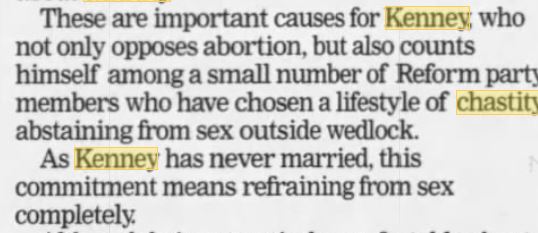Alex1Powell Categories For later read
7 days
30 days
All time
Recent
Popular
THREAD: a point worth addressing is "how would/should VP respond if GOP retained its majority, then voted to suspend/amend a Senate Rule depriving the presiding officer of power." Paragraph 6 of the article wasn't as strong as it could have been, on that point.
The problem with that attack is encapsulated in the Senate's official history (cited graf 7) - https://t.co/UwF93b9YaA
The Senate's official history on its https://t.co/gLTPXi8eiT site recounts the Constitutional fact that the majority leader's presiding powers are derivative.
A power informally delegated by the VP can be taken back, so the Senate history accurately describes the majority leader as "an emperor without clothes." So, if the VP used presiding power to give priority to a senator moving a House-passed bill to the floor, and . . .
. . . the House purported to override that action by 1) self-recognizing the ML to do something different, and then 2) sustaining a point of order limiting the VP's presiding power, what would be the legal basis and remedy for that action?
Several principles intersect here that arise from agency rulemaking. But first, we have to recognize the Supremacy Clause - the Constitution is a superior law to any other law, rule or precedent.
This piece by @ThatShockratees is the best thing you will read today.
— Greg Olear (@gregolear) December 15, 2020
We know Biden will replace Trump as President. We didn't know MVP Kamala can replace Mitch as presiding officer of the Senate.https://t.co/vSOlywz8Hn
The problem with that attack is encapsulated in the Senate's official history (cited graf 7) - https://t.co/UwF93b9YaA
The Senate's official history on its https://t.co/gLTPXi8eiT site recounts the Constitutional fact that the majority leader's presiding powers are derivative.
A power informally delegated by the VP can be taken back, so the Senate history accurately describes the majority leader as "an emperor without clothes." So, if the VP used presiding power to give priority to a senator moving a House-passed bill to the floor, and . . .
. . . the House purported to override that action by 1) self-recognizing the ML to do something different, and then 2) sustaining a point of order limiting the VP's presiding power, what would be the legal basis and remedy for that action?
Several principles intersect here that arise from agency rulemaking. But first, we have to recognize the Supremacy Clause - the Constitution is a superior law to any other law, rule or precedent.
the absence of private demand makes government expenditure necessary. It repays itself by creating a stronger economy than would have otherwise been the case. For me that is the macro - non-household budget - reasoning. (1/13ish)
Making G contingent on a ultra low government rate of interest (ULGROI) seems household budget thinking: lower expenditure on interest payments is being portrayed as permitting the higher expenditure on G. (2/13)
All fine that this is permitting those who think in a household budget way (OBR, IFS etc) to support spending (or rather not prescribe austerity) but it is not the macro of the situation. (3/13)
As an aside I'd rather call out the household budget mob for prescribing austerity last time, not least in the week that the OECD publicly acknowledged austerity was overdone. Parotting their present argument seems to let them off the hook. (4/13)
As you know the low rate of interest - in advanced economies on government debt - is not a matter of chance but a consequence of a decade of reliance on QE and a wider global retreat from risk. (5/13)
I\u2019m not clear what you are arguing about the rate of interest\u2014you only mention it in passing here?
— Jo Michell (@JoMicheII) December 3, 2020
Making G contingent on a ultra low government rate of interest (ULGROI) seems household budget thinking: lower expenditure on interest payments is being portrayed as permitting the higher expenditure on G. (2/13)
All fine that this is permitting those who think in a household budget way (OBR, IFS etc) to support spending (or rather not prescribe austerity) but it is not the macro of the situation. (3/13)
As an aside I'd rather call out the household budget mob for prescribing austerity last time, not least in the week that the OECD publicly acknowledged austerity was overdone. Parotting their present argument seems to let them off the hook. (4/13)
As you know the low rate of interest - in advanced economies on government debt - is not a matter of chance but a consequence of a decade of reliance on QE and a wider global retreat from risk. (5/13)




























